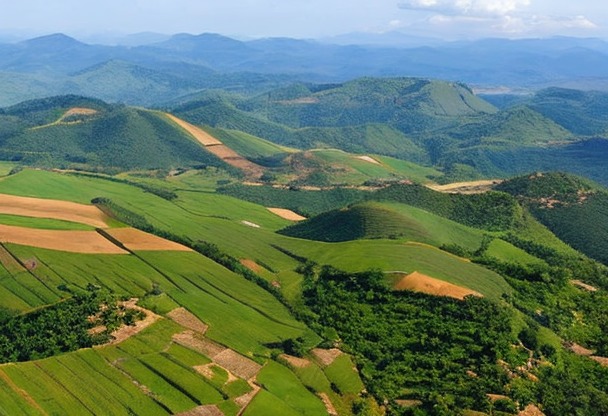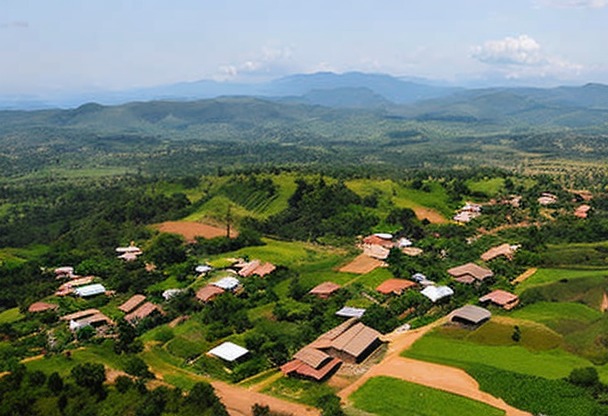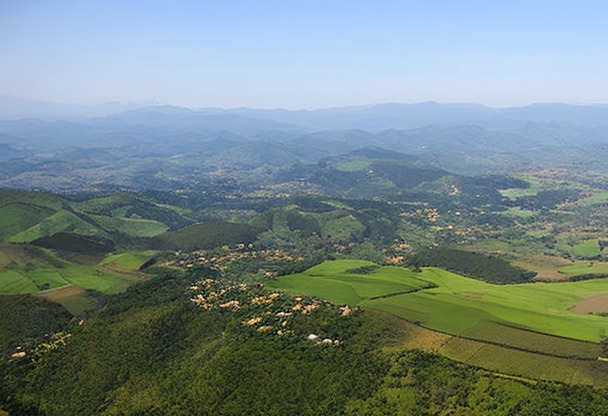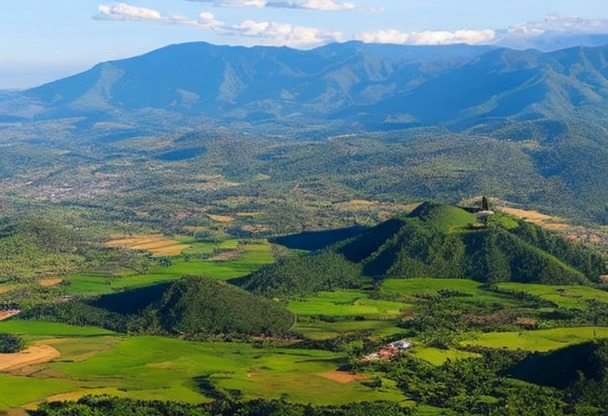Best time to travel to Burundi
Choosing the right period for your trip to Burundi can make all the difference. It's important to consider climatic elements, seasonal events and busy tourist periods to maximize your travel experience.

Location
Climate
The different seasons in Burundi
Burundi's climate is equatorial, with moderate temperatures all year round. However, there are two main seasons: the rainy season and the dry season.The rainy season
The rainy season generally extends from February to May and from October to December. During this period, rainfall is abundant and can make travel difficult, especially in rural areas. Temperatures vary between 15°C and 25°C during the rainy season.The dry season
The dry season in Burundi runs from June to September and from January to February. During this period, the temperatures are pleasant, fluctuating between 20°C and 28°C, with cool nights. Visit dry season is the ideal time to visit the country, as weather conditions are milder, facilitating travel and tourist activities.Major cultural events in Burundi
Beyond the country's natural beauty, Burundi's rich culture is reflected in its many festivities and ceremonies throughout the year. Here are just a few of the cultural events not to be missed during your visit:- National Unity Day: Celebrated on February 5, the holiday commemorates the assassination of President Melchior Ndadaye in 1993, and aims to promote national unity and reconciliation between the country's different ethnic groups.
- Independence Day: July 1 marks Burundi's independence, achieved in 1962 after decades of Belgian colonization. Parades, concerts and other cultural events are held throughout the country to mark this historic event.
- Fête de la Révolution : Every year on November 8, Burundi celebrates the 1976 revolution that led to the overthrow of Michel Micombero's dictatorial regime. Demonstrations and cultural events are held throughout the country to commemorate this historic event.
- Burundi International Film and Audiovisual Festival (FICAB): This annual festival, held in September, is dedicated to the promotion of Burundian and African cinema and audiovisual arts. It attracts directors, actors and producers from all over the world, and features screenings, workshops and conferences on the 7th art.
Public holidays in Burundi
In addition to the major cultural events mentioned above, it's important to take public holidays into account when planning your trip to Burundi. Here is a list of the main public holidays in the country:- January 1: New Year's Day
- March-April (dates vary) : Good Friday and Easter Monday
- May 1: Labour Day
- Ascension (date varies)
- Pentecost (date varies)
- July 1: Independence Day
- August 15: Assumption
- October 13: Revolution Day
- November 1: All Saints' Day
- December 25: Christmas
Low and high season in Burundi
There low season in Burundi generally corresponds to the rainy season, from February to May and October to December. During these months, there are fewer tourists, which can mean lower prices on accommodation and tourist activities. However, it is important to note that some roads may be impassable due to rainfall, and some activities, such as hiking or visiting national parks, may be compromised. Visit high season corresponds to the dry season, from June to September and January to February. During this period, the weather is generally mild, travel conditions are better and tourist activities are more plentiful. However, you should book your accommodation and activities in advance to avoid the inconvenience of crowds.Insurance

Your credit card does not cover you in all situations, that is whyIt is essential to take out insurance before you leave to avoid any unpleasant surprises. If you need to see a doctor or be hospitalized, in some countries, medical costs are very high and you will then find yourself having to pay several thousand euros.
Our partner Chapka Insurance proposes the contract CAP ASSISTANCE 24/24 with many essential guarantees.


Flights

Your flight has been cancelled or delayed ?
You may be eligible for a compensation of up to €600 ! For this, lawyers are responsible for handling your claim with the airline and are only paid when the reimbursement is effective.
In conclusion, no financial risk for you, only advantages!
General statistics on immigration to Burundi
According to ministerial statistical serviceThe total number of immigrants to Burundi in 2019 was around 150,000. Some of these immigrants are refugees fleeing conflicts in neighboring countries, while others come to work or study. Integrating these new arrivals represents a major challenge for the Burundian authorities, who also have to deal with border management and security issues.Immigrant origins and age distribution
Most of Burundi's immigrants come from neighbouring countries, such as the Democratic Republic of the Congo. Democratic Republic of Congo, THE Rwanda and the Tanzania. However, there are also nationals from other African countries and even from Europe, Asia and America. In terms of age distribution, almost half of all immigrants are between 25 and 64 years of age, while young people under 25 account for around a quarter of the population.Most popular visas in Burundi
Burundi issues several types of visa to foreigners wishing to enter the country. Some of these are particularly popular, due to the opportunities they offer or the ease with which they can be obtained.- Work visa: This visa is intended for people hired by a local or international company to work in Burundi. It is generally valid for up to two years, renewable under certain conditions.
- Student visa: Foreign students admitted to a Burundian higher education institution can obtain this visa to pursue their studies. The duration of the visa corresponds to that of the course of study, with a maximum limit of three years.
- Family visit visa : Family members of Burundian residents can apply for this visa to visit their loved ones. The visa is granted for a period of six months to one year.
- Tourist visa : Foreign tourists must obtain this visa before entering Burundi. It is generally issued for a period of 30 days, extendable under certain conditions.
International tourism figures for Burundi
Despite the difficult political and economic situation, Burundi is trying to develop its tourism sector to diversify its sources of income. The authorities are focusing in particular on promoting the country's natural and cultural assets to an international clientele.Number of international tourist arrivals
According to available data, the number of international tourist arrivals in Burundi has seen an increase in recent years. In 2018, almost 250,000 foreign visitors entered the countrycompared with around 200,000 in 2016. However, these figures remain modest compared to neighboring tourist destinations, such as the Kenya or the Tanzania.Tourism's contribution to GDP
Tourism accounts for a relatively small share of Gross Domestic Product (GDP) of Burundi, with around 5 % in 2019. Nevertheless, the sector remains important for the national economy, generating foreign currency and contributing to job creation, particularly in the service sector.Main tourist attractions
Burundi offers a number of tourist attractions likely to be of interest to foreign visitors. These include- THE Kibira National Parkhome to a wide variety of flora and fauna, as well as spectacular scenery.
- There Rusizi nature reservelocated along the Rusizi River and renowned for its hippopotamus and crocodile populations.
- THE Lake Tanganyika beachesThese include Bujumbura and Saga Beach.
- Cultural and historical sites such as the royal palace of Gitega or Bujumbura's living museum.


